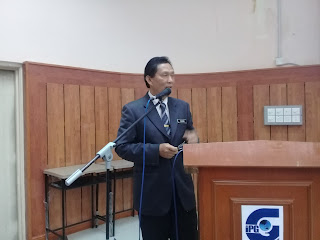‘Coaching relates primarily to performance improvement
(often short-term) in a specific skills area. The goals, or at least the
intermediate or sub-goals, are typically set with or at the suggestion of the
coach. While the learner has primary ownership of the goal, the coach has
primary ownership of the process. In most cases, coaching involves direct
extrinsic feedback (i.e. the coach reports to the coachee what he or she has
observed).’
(Meggison and Clutterbuck, Techniques for Coaching and Mentoring)
Coaching is a structured, sustained process that enables the
development of a specific aspect of a professional learner’s practice. It
involves activities which promote and enhance the development of a specific
aspect of teaching and learning or leadership practice. Mentoring, however, is a structured, sustained process that provides support to professional
learners as they are going through significant transitions in their career. It
involves activities that could promote and enhance the effective transitions
between various professional roles. Both coaching and mentoring involve:
- identifying learning goals
- developing increasing learners’control over their learning
- active listening
- modelling, observing, articulating and discussing learners’ experiences to raise awareness
- shared learning experiences
- providing guidance, feedback and, when necessary, direction to the learners
- review and action planning
Although coaching and mentoring use the same skills and approach, they differ in a sense that coaching is short term and task-based whilst mentoring involves a longer term relationship.
COACHING
|
MENTORING
|
Relationship
generally has a set duration
|
On-going
relationship that might last for a long time
|
Generally
more structured in nature and meetings are scheduled regularly
|
Can
be more informal and meetings can take place as and when the client needs
advice, guidance or support
|
Will
help you to identify your own solutions
|
Will
share ideas and what they have done
|
Short-term
and focused on specifi c development areas/issues
|
More
long-term and takes a broader view of the person
|
Coaching
is a more equal relationship and generally not determined by the level of
experience the coach has of the client’s formal occupational role – rather
this professional distance can help to provide a thinking partnership with a
different level of challenge and support
|
Mentor
is usually more experienced and
qualified than the client; often a senior person in the organisation who can pass on knowledge, experience and can open doors to otherwise out-of reach opportunities |
Coaching and Mentoring Handbook, London Leadership Academy
Given the benefits of coaching and mentoring, a Coaching and Mentoring Workshop was conducted in IPG Kampus Tengku Ampuan Afzan on 30 October 2017 with the purpose to enhance learning, development, and performance as well as to enable the IPG staff to develop their skills, competencies, and attitudes in order to achieve the desired outcomes in education. Below is a series of photos taken on that day.
Given the benefits of coaching and mentoring, a Coaching and Mentoring Workshop was conducted in IPG Kampus Tengku Ampuan Afzan on 30 October 2017 with the purpose to enhance learning, development, and performance as well as to enable the IPG staff to develop their skills, competencies, and attitudes in order to achieve the desired outcomes in education. Below is a series of photos taken on that day.
Encik Abdul Razak Alias giving a talk on coaching and mentoring
The staff of IPG Kampus Tengku Ampuan Afzan
The Workshop Committee
Lunch at Cafe Azizi with the director, Tuan Haji Abdullah bin Mohd Yusof
Closing ceremony
Closing speech by deputy director, Dr. Abdul Shatar bin Che Abdul Rahman
Souvenir giving ceremony















No comments:
Post a Comment